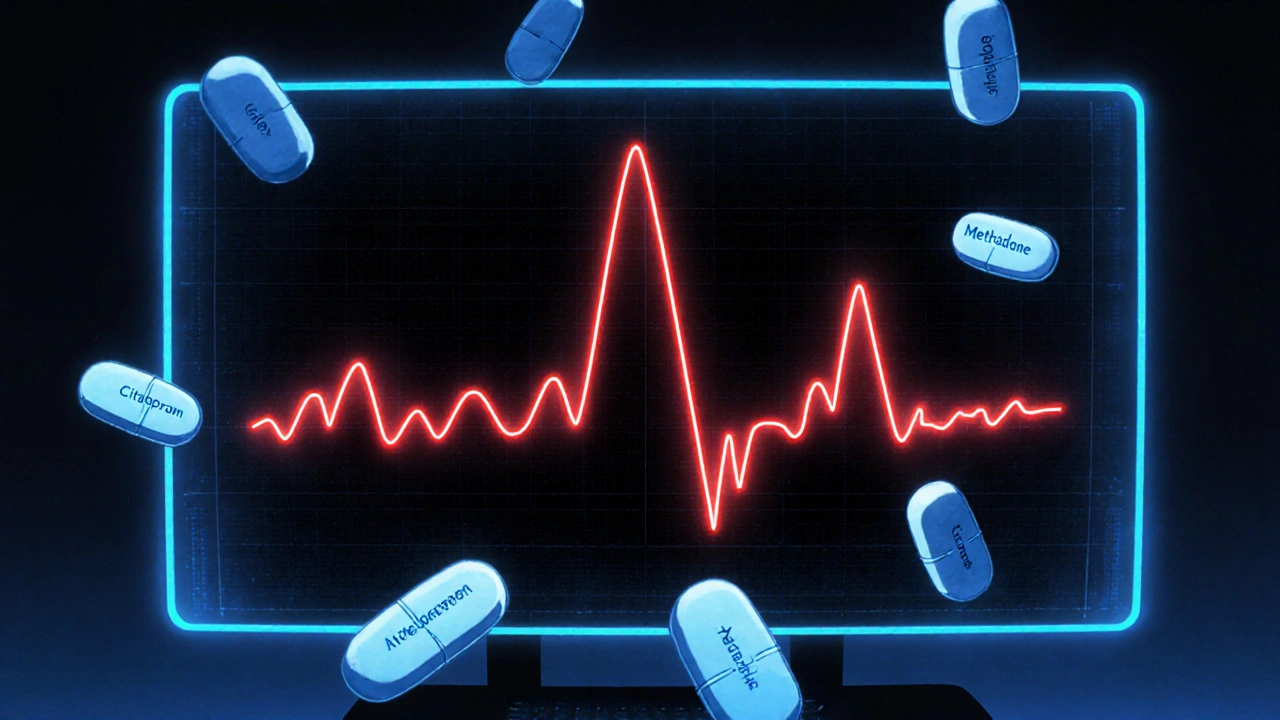QT Prolongation: Risks, Medications, and What You Need to Know
When your heart’s electrical cycle gets thrown off, it can lead to something called QT prolongation, a delay in the heart’s ventricular repolarization phase that increases risk of dangerous irregular heartbeats. Also known as long QT syndrome, it’s not always genetic—often, it’s caused by everyday medications you might not think twice about. This isn’t just a lab result on a report. Left unchecked, it can trigger torsades de pointes, a life-threatening type of ventricular arrhythmia that can lead to sudden cardiac arrest. And while it sounds rare, it’s more common than you’d expect, especially in people taking multiple drugs or those with existing heart conditions.
Many common prescriptions and even over-the-counter meds can stretch out that QT interval. Antidepressants like MAOIs, monoamine oxidase inhibitors used for treatment-resistant depression, are known culprits. So are certain antibiotics, antifungals, antipsychotics, and even some antihistamines like diphenhydramine (Benadryl). It’s not just one drug—it’s the combo. Take an anticholinergic for overactive bladder, add a benzodiazepine for anxiety, and throw in an antibiotic for a sinus infection? That’s when the risk spikes. Older adults are especially vulnerable, not just because of polypharmacy, but because their bodies process drugs slower. The same meds that help one person can quietly endanger another.
It’s not about avoiding all meds—it’s about knowing which ones to watch. If you’re on more than three medications, have a history of heart rhythm issues, or take anything for depression, anxiety, or chronic pain, talk to your doctor about your QT risk. A simple ECG can catch it early. And if you’ve ever passed out suddenly, felt your heart race for no reason, or had a family member die young from an unexplained cardiac event, that’s not just bad luck—it could be a warning sign.
Below, you’ll find real, practical guides on the exact drugs linked to QT prolongation—how they interact, who’s most at risk, and how to avoid dangerous combinations. You’ll see how meds like MAOIs, anticholinergics, and benzodiazepines can quietly stack up to create a hidden danger. No fluff. No jargon. Just what you need to keep your heart safe while still getting the treatment you need.
Torsades de Pointes from QT-Prolonging Medications: How to Recognize and Prevent This Deadly Reaction
Torsades de Pointes is a rare but deadly heart rhythm caused by QT-prolonging medications. Learn how to recognize the warning signs, which drugs are most dangerous, and exactly how to prevent this preventable cardiac emergency.
